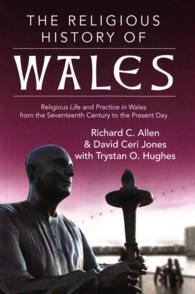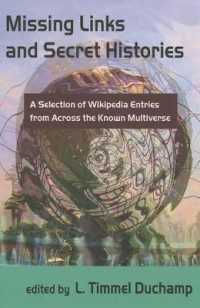- ホーム
- > 洋書
- > ドイツ書
- > Social Sciences, Jurisprudence & Economy
- > Education Science / Pedagogic
- > didactics, methodics, school education
Full Description
This edited volume utilizes critical perspectives other than/or in addition to LGBTQ+ studies to facilitate knowledge-building on pedagogical and curricular approaches to LGBTQ+ studies within the context and concerns of promoting LGBTQ+ inclusivity across various educational spaces.








